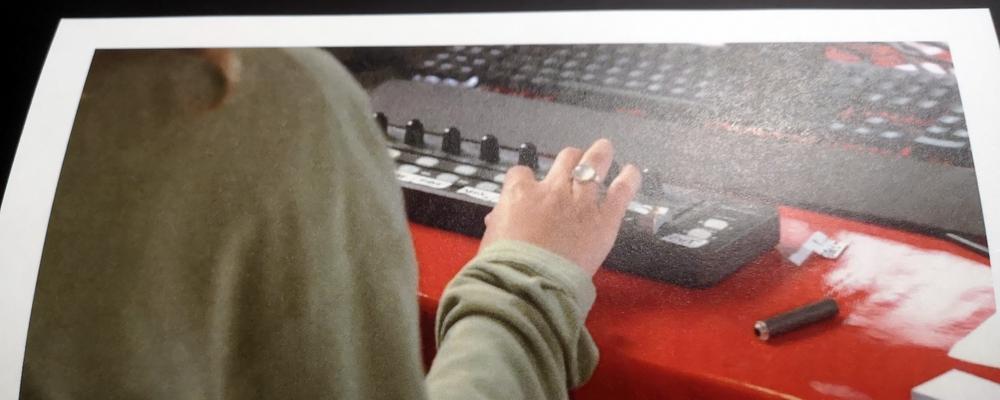In a way, Eva la Cour began her research back in 2010. Several of the questions she has pursued and worked with during her time as a doctoral student in artistic expression at HDK-Valand came up at that time, while she was artist in residence on a ship off the west coast of Svalbard.
“Everyone on board stood there with their cameras, microphones and all the other equipment that makes it possible to depict Svalbard in the way we do,” says la Cour. “It was bewildering to me, and it made me wonder about the role an artist has in portraying Svalbard.”
Discontent an Important Word
Her thesis has been given the title Geo-Aesthetical Discontent: Svalbard, the Guide and Post-Future Essayism. The term discontent is an important point of departure for the work. It’s about dissatisfaction with how the Arctic region is often portrayed as a remote wilderness, a place outside of the global Western world. It is particularly topical in connection with the climate crisis.
“The English word discontent has a double meaning: in addition to dissatisfaction it can also be read as the lack of representative discourses,” says la Cour.
Her thesis looks at how things have been portrayed in pictures by a number of different people, from photographers to writers and anthropologists, as references and sources of inspiration. They include Jette Bang, Emilie Demant Hatt, Johan Turi, Margaret Mead and Gregory Bateson.
Using the Camera to Take Notes
Eva la Cour studied art at the Jutland Art Academy in Århus as well as media and visual anthropology at the Free University of Berlin. But she feels most at home working as an artist. Her primary means of expression are film, installation and sound.
“I work with anthropological problem statements and in relation to film history,” says la Cour, “but personally I think art offers the greatest freedom to explore and experiment. That’s my way. Although of course there are many other ways of being an artist.”
Since that very first encounter with Svalbard, she has returned several times. She has also used her camera as a tool for taking notes and, as la Cour puts it, allowing herself to be seduced by what she has seen and experienced. Between and after these trips, she has concentrated on collecting materials, and on many occasions edited it live before an audience.
“I’ve invited in various colleagues each time,” she says. “We’ve gotten together and made something out of the material we have, while the audience can watch simultaneously.”
Challenging Traditional Essay Film
From these events has emerged what la Cour calls “post-future essayism”. It’s a method of artistic creation that distances itself from the cliché image of the artist as a lone genius or as someone who creates an enduring work for the future.
“I challenge and at the same time build on the intellectual history of the traditional essay film by questioning the idea of essay film as a film with a linear narrative,” she says. “Instead, I want to see film in a different way, and always be testing my way forward. If you ask me what the foremost result of my dissertation is, I would say it’s this methodology of iterative processes and overlapping temporalities.”
What’s Next After Her Defence?
“First I’m going to allow myself to take a little break,” says la Cour. “Then I hope I’ll be able to keep one foot in the academic world and the other in independent work as an artist. While I’ve been working on my thesis I’ve had to shut down many other ideas that I’ll be able to run with now. Among other things, I’ve been invited to be an artist in residence in Brussels, where I’m going to continue exploring various archives. And then I’d really like to keep teaching. That’s something I really like doing.”
By Camilla Adolfsson


